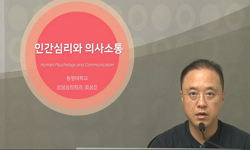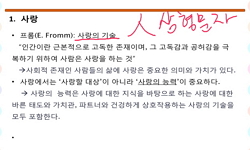본 연구의 목적은 걸음마기 자녀를 둔 아버지와 어머니의 자녀 기질에 대한 보고가 일치하는지와 그 들의 보고에 영향을 주는 요인을 살펴봄으로써 부모를 자녀 기질에 대한 정보제공자로 ...
http://chineseinput.net/에서 pinyin(병음)방식으로 중국어를 변환할 수 있습니다.
변환된 중국어를 복사하여 사용하시면 됩니다.
- 中文 을 입력하시려면 zhongwen을 입력하시고 space를누르시면됩니다.
- 北京 을 입력하시려면 beijing을 입력하시고 space를 누르시면 됩니다.
https://www.riss.kr/link?id=A103062261
- 저자
- 발행기관
- 학술지명
- 권호사항
-
발행연도
2013
-
작성언어
Korean
- 주제어
-
등재정보
KCI등재
-
자료형태
학술저널
-
수록면
29-46(18쪽)
-
KCI 피인용횟수
2
- DOI식별코드
- 제공처
-
0
상세조회 -
0
다운로드
부가정보
국문 초록 (Abstract)
본 연구의 목적은 걸음마기 자녀를 둔 아버지와 어머니의 자녀 기질에 대한 보고가 일치하는지와 그 들의 보고에 영향을 주는 요인을 살펴봄으로써 부모를 자녀 기질에 대한 정보제공자로 선정할 때, 고려 할 사항에 관한 결정에 도움을 주는 것이다. 이를 위해 40쌍의 부부를 대상으로 걸음마기 기질 질문지 (ECBQ)와 한국판 애착 Q-set를 사용하였다. 연구결과 아버지와 어머니의 자녀 기질에 대한 판단은 유 사하였으나 완전에 가깝지는 않았고, 자녀 기질의 하위 영역에 따라서도 일치 정도가 달랐다. 또한 아 버지와 어머니의 자녀 기질에 대한 보고에는 자녀의 성과 자녀와의 애착정도가 영향을 미치는 것으로 나타났다. 이와 같은 연구결과는 아버지와 어머니가 인식하는 자녀의 기질은 서로 다른 측면이 있으므 로, 어머니에게만 자녀의 기질을 측정하게 하는 관행에서 벗어날 필요가 있음을 시사한다.
다국어 초록 (Multilingual Abstract)
The purposes of this study were to compare and contrast the evaluations by the father and the mother on their own child’s temperament and to find out what factors affected their evaluations. Forty pairs of father-mother dyad participated in this stu...
The purposes of this study were to compare and contrast the evaluations by the father and the mother on their own child’s temperament and to find out what factors affected their evaluations. Forty pairs of father-mother dyad participated in this study. Early Childhood Behavior Questionnaire and Attachment Q-set in the Korean version were used to measure children’s temperament and attachment. The results showed that the evaluations by the father and the mother dyad were relatively similar to each other, but far from being identical. In addition, the similarity between the father and the mother varied depending on the subareas of children’s temperament. The child’s gender and attachment predicted the parents’ evaluations, but the patterns of prediction also varied depending on the subareas of children’s temperament. The results of this study have implications to the research decisions regarding from whom the information about children’s temperament should be obtained.
참고문헌 (Reference)
1 이영, "한국판 애착 Q-set의 국내 준거 개발 연구" 18 (18): 131-148, 1997
2 李庭喜, "취업모와 자녀간 애착 안정성과 관련 변인간의 관계" 延世大學校 大學院 1994
3 문상희, "유아의 기질과 교사-유아 관계가 유아의 문제행동에 미치는 영향" 한국보육지원학회 8 (8): 69-89, 2012
4 조은정, "유아-어머니 애착유형에 따른 놀이특성 및 사회적 기술과의 관계" 한국아동교육학회 20 (20): 251-264, 2011
5 김은화, "영유아의 생활시간 및 부모-자녀 공유시간 실태 연구" 경희대학교 대학원 2012
6 이영, "영유아 양육환경에 대한 생태학적 연구: 가정과 어린이집을 중심으로" 15 (15): 37-54, 1994
7 최석란, "영아의 사회․정서 발달과 보육교사의 역할" 14 : 97-116, 2007
8 조영아, "영아의 기질 요인에 따른 영아-교사 간 애착 안정성 및 또래 간 상호작용 차이" 한국열린유아교육학회 14 (14): 207-229, 2009
9 이상은, "어머니와 교사에 대한 유아의 애착안정성과 유아의 사회적 능력과의 관계" 한국교육심리학회 17 (17): 165-185, 2003
10 김난실, "만2세반 유아의 또래 상호작용에 영향을 미치는 관련변인 연구" 이화여자대학교 대학원 2004
1 이영, "한국판 애착 Q-set의 국내 준거 개발 연구" 18 (18): 131-148, 1997
2 李庭喜, "취업모와 자녀간 애착 안정성과 관련 변인간의 관계" 延世大學校 大學院 1994
3 문상희, "유아의 기질과 교사-유아 관계가 유아의 문제행동에 미치는 영향" 한국보육지원학회 8 (8): 69-89, 2012
4 조은정, "유아-어머니 애착유형에 따른 놀이특성 및 사회적 기술과의 관계" 한국아동교육학회 20 (20): 251-264, 2011
5 김은화, "영유아의 생활시간 및 부모-자녀 공유시간 실태 연구" 경희대학교 대학원 2012
6 이영, "영유아 양육환경에 대한 생태학적 연구: 가정과 어린이집을 중심으로" 15 (15): 37-54, 1994
7 최석란, "영아의 사회․정서 발달과 보육교사의 역할" 14 : 97-116, 2007
8 조영아, "영아의 기질 요인에 따른 영아-교사 간 애착 안정성 및 또래 간 상호작용 차이" 한국열린유아교육학회 14 (14): 207-229, 2009
9 이상은, "어머니와 교사에 대한 유아의 애착안정성과 유아의 사회적 능력과의 관계" 한국교육심리학회 17 (17): 165-185, 2003
10 김난실, "만2세반 유아의 또래 상호작용에 영향을 미치는 관련변인 연구" 이화여자대학교 대학원 2004
11 최미숙, "교사와 어머니가 평가한 유아 기질 차이 및 자기조절능력간의 관계" 한국열린유아교육학회 11 (11): 1-22, 2006
12 고지민, "걸음마기 영아-어머니간 상호작용의 반응성" 이화여자대학교 대학원 2011
13 Reznick, J., "When is an assessment an intervention? Parent perception of infant intentionality and language" 40 : 11-17, 2001
14 Goldsmith, H., "Validity of parental report of temperament: Distinctions and needed research" 26 : 108-111, 2003
15 Laible, D., "The quality and frequency of mother-toddler conflict: Links with attachment and temperament" 79 : 426-443, 2008
16 Wallace, D., "The observing eye : A century of baby diaries" 37 : 1-29, 1994
17 Van den Boom, D. C., "The influence of temperament and mothering on attachment and exploration: An experimental manipulation of sensitive responsiveness among lower-class mothers with irritable infants" 65 : 1457-1477, 1994
18 Leerkes, E., "The impact of maternal characteristics and sensitivity on the concordance between maternal reports and laboratory observations of infant negative emotionality" 4 : 517-539, 2003
19 Plant, E., "The gender stereotyping of emotion" 24 : 81-92, 2000
20 Buss, A. H., "Temperament: Early developing personality traits" Erlbaum 1984
21 Rothbart, M., "Temperament, In Handbook of child psychology: Child psychology in practice" Wiley 99-166, 2006
22 Persson-blennow, I., "Temperament characteristics of children in relation to gender, birth order, and social class" 51 (51): 710-714, 1981
23 Sirignano, S., "Personality change during the transition to parenthood: The role of perceived infant temperament" 21 : 558-567, 1985
24 Wong, M., "Parental beliefs, infant temperament, and marital quality: Associations with infant-mother and infant-father attachment" 23 (23): 828-838, 2009
25 Matthew, K., "Parental affect and childrearing beliefs uniquely predict mothers' and fathers' ratings of children's behavior problems" 28 : 445-457, 2007
26 Leary, A., "Observations of aggressive children during peer provocation and with a best friend" 41 (41): 124-134, 2005
27 Lindsey, E., "Mother-child and father-child mutuality in two contexts: Consequences for young children's peer relationships" 19 : 142-160, 2010
28 Solmeyer, A., "Mother and father adjustment during early parenthood: The roles of infant temperament and coparenting relationship quality" 34 : 504-514, 2011
29 Putnam, S., "Measurement of fine-grained aspects of toddler temperament: The early childhood behavior questionnaire" 29 : 386-401, 2006
30 Kochanska, G., "Interplay of genes and early mother-child relationships in the development of self-regulation from toddler to preschool age" 50 (50): 1331-1338, 2009
31 Pesonen, A., "Insecure adult attachment style and depressive symptoms: Implications for parental perceptions of infant temperament" 25 : 99-116, 2004
32 Mangelsdorf, S., "Infant attachment: Contributions of infant temperament and maternal characteristics" 23 : 175-196, 2000
33 Pruett, K., "Fatherneed: Why father care is as essential as mother care for your child" The Free Press 2000
34 Casas, J., "Early parenting and children's relational and physical aggression in the preschool and home contexts" 27 : 209-227, 2006
35 Waters, E., "Defining and assessing individual differences in attachment relationship: Q-methodology and organization of behavior in infancy and early childhood" 50 (50): 41-65, 1985
36 Winsler, A., "Correspondence between maternal and paternal parenting styles in early childhood" 20 : 1-12, 2005
37 McBride, B., "Child characteristics, parenting stress, and parental involvement: Fathers versus mothers" 64 : 998-1001, 2002
38 Bodnarchuk, J., "Can parent reports be trusted?: Validity of daily checklists of gross motor milestone attainment" 25 : 481-490, 2004
39 Vaughn, B., "Attachment Security and temperament in infancy and early childhood: Some conceptual clarifications" 28 (28): 3463-3473, 1992
40 Siegal, M., "Are sons and daughters treated more differently by fathers than by mothers?" 7 (7): 183-209, 1987
동일학술지(권/호) 다른 논문
-
- 한국육아지원학회
- 정혜욱(CHUNG-HOE-WOOK)
- 2013
- KCI등재
-
유아 성별에 따른 아버지의 놀이참여와 유아의 행동적 자기조절력의 관계
- 한국육아지원학회
- 류희정(Ryu Hee Jeong)
- 2013
- KCI등재
-
- 한국육아지원학회
- 이진화(Lee Jin-wha)
- 2013
- KCI등재
-
예비유아교사의 사회 교수효능감 수준에 따른 사회 교과교육학지식 및 교사 역할 인식에 관한 연구
- 한국육아지원학회
- 손복영(sohn bok young)
- 2013
- KCI등재
분석정보
인용정보 인용지수 설명보기
학술지 이력
| 연월일 | 이력구분 | 이력상세 | 등재구분 |
|---|---|---|---|
| 2022 | 평가예정 | 재인증평가 신청대상 (재인증) | |
| 2019-01-01 | 평가 | 등재학술지 유지 (계속평가) |  |
| 2016-01-01 | 평가 | 등재학술지 유지 (계속평가) |  |
| 2012-01-01 | 평가 | 등재학술지 선정 (등재후보2차) |  |
| 2011-01-01 | 평가 | 등재후보 1차 PASS (등재후보1차) |  |
| 2009-01-01 | 평가 | 등재후보학술지 선정 (신규평가) |  |
학술지 인용정보
| 기준연도 | WOS-KCI 통합IF(2년) | KCIF(2년) | KCIF(3년) |
|---|---|---|---|
| 2016 | 1.61 | 1.61 | 1.61 |
| KCIF(4년) | KCIF(5년) | 중심성지수(3년) | 즉시성지수 |
| 1.73 | 1.7 | 1.654 | 0.45 |




 KCI
KCI DBpia
DBpia






